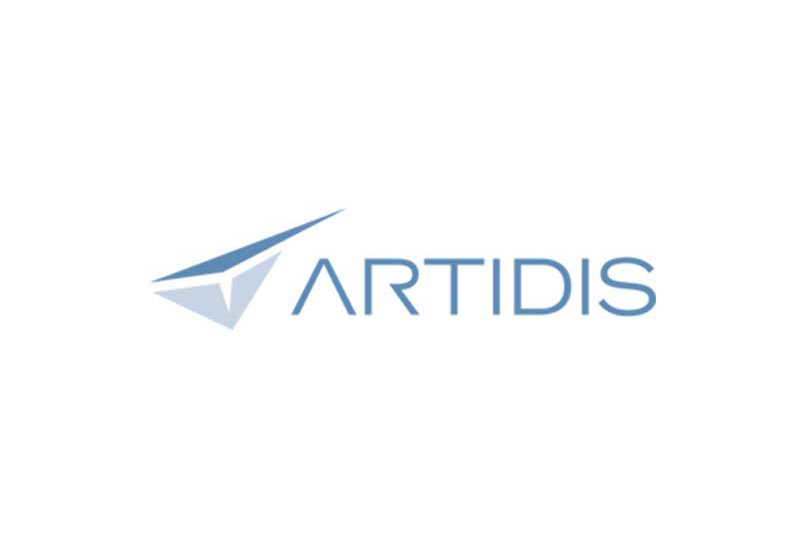
ARTIDIS AG
Hochbergerstrasse 60C, 4057 Basel, Switzerland
Phone +41 61 633 29 95 | www.artidis.com
Basel, Switzerland, December 21, 2020 – ARTIDIS AG, a privately held health-tech company, investigates the predictive value of nanomechanical tissue signature on outcomes in response to cancer therapy. The research strives to validate ARTIDIS technology as a novel tool for understanding resistance and immune response mechanisms in lung-based cancers with the perspective to optimize cancer diagnosis and classification, therapy choice, and support patient follow-up.
ARTIDIS will collaborate with James Welsh, M.D., associate professor of Radiation Oncology at The University of Texas MD Anderson Cancer Center, to analyze nanomechanical profiles of cancer tissue and sub-cellular components, i.e. tumor microenvironments (TME), in different preclinical lung-based cancer models and will examine the correlation of such nanomechanical signatures with outcomes. Furthermore, the project aims to investigate nanomechanical changes upon standard of care interventions to treat lung cancer including radiation therapy (RT) and immune checkpoint inhibitor (ICI) treatment. This preclinical work is intended to be used as a lead into clinicals studies anticipated for the first half 2021.
Established clinico-pathological markers are often insufficient to effectively stratify patients into distinct risk outcome groups which frequently results in over- and undertreatment. This research is expected to identify nanomechanical phenotypes that can be used as biomarkers for (1) programmed cell death 1
(PD-1) resistance which could result in unwanted cancer progression and (2) response to RT and ICI therapies which can alter tumor stiffness thereby potentially enhancing sensitivity to treatment. Furthermore, ARTIDIS technology platform aims at identifying immunogenic tumors and patients with higher potential of response to immunotherapy. The results of this project could have a major impact for lung-based cancers by providing new insights to further help to select the best treatment option and reduce over/under-treatment of lung-based cancer patients.
“Our work will provide invaluable insight into the mechanisms of immune checkpoint resistance in lung-based cancers,” said Marija Plodinec, Ph.D., CEO at ARTIDIS. “The knowledge we gain in this project will deepen our understanding of the nanomechanical signature as a key biomarker to maximize the response of solid tumors to immuno and cell therapy. We aim to achieve this by measuring and then adjusting the physical characteristics of tumors with radiation prior to therapy in order to maximize their “permeability” to therapeutic agents. Our ultimate goal is for patients who are non-responders to become responders, and for responders to respond better.”
The research builds on previous ARTIDIS data which has shown that tissue-mechanical alterations at the sub-cellular level (in nanoscale resolution) in cancer are potentially suitable markers of cancer aggressiveness and indicators for treatment response [1]. This finding was clinically validated in a prospective study in 545 breast cancer patients, where nanomechanical profiling was used to distinguish subtypes of cancerous lesions with the goal of stratifying high and low risk patients for developing metastases [2]. Moreover, ARTIDIS results suggest that nanomechanical changes in response to treatment may predict responder rate and outcome [2].
About ARTIDIS
ARTIDIS AG is a clinical stage health-tech company located in Basel, Switzerland, that has developed the first nanomechanical biomarker for cancer diagnosis and treatment optimization. The ARTIDIS nanotechnology platform integrates the mechanical biomarker data and different types of clinical data into the ARTIDISNet digital platform, allowing physicians to significantly shorten bedside biopsy analysis to less than three hours, enabling personalized disease prognosis and aiding with treatment optimization, thereby bringing benefit to both the patient and the healthcare system. Investigated initially in breast, lung and pancreatic cancer, the ARTIDIS applications are not limited to oncology, and its nanotechnology platform can be used to analyze any kind of living tissue.
For more information please visit www.artidis.com.
For further information please contact:
Dr. Marija Plodinec, CEO
Phone: +41 61 633 29 95
marija.plodinec@artidis.com
